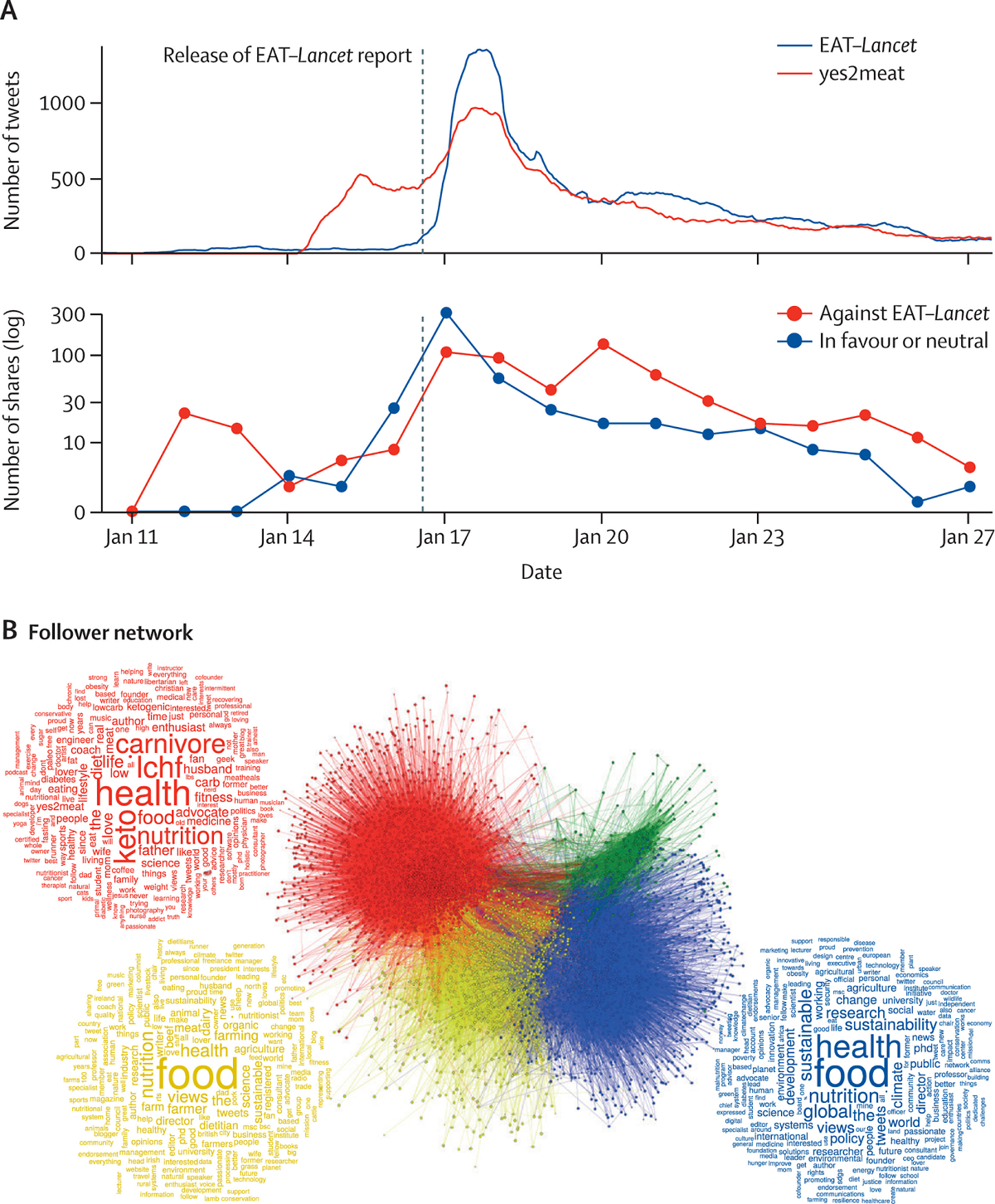This paper analyses the Twitter reactions to the diet proposed by the EAT-Lancet Commission on healthy diets from sustainable food systems, focusing on the #yes2meat hashtag as well as the official #EATLancet hashtag. The study found a sizable countermovement that was sceptical of the EAT-Lancet dietary recommendations, with the #yes2meat term becoming prominent around one week before the EAT-Lancet report was launched.

The figure below from the paper shows mentions of the terms EAT-Lancet and yes2meat over time, trends in sentiment regarding EAT-Lancet over time, and clusters of Twitter users according to their attitude to EAT-Lancet. The large blue cluster (bottom right) shows positive reactions to EAT-Lancet, the large red cluster (top left) shows users with negative reactions, the large yellow cluster (bottom left) shows mixed reactions, and the small green cluster (top right) shows supporters of vegan diets who opposed the #yes2meat movement without referencing the EAT-Lancet commission.


According to the study, users in the yellow (ambivalent) cluster became more sceptical of the EAT-Lancet’s recommendations over time, tending to share tweets from the sceptical community (red cluster) more often than from the supportive community (blue cluster). The authors note that the #yes2meat movement was not driven by bots, but rather by genuine sceptical social media users.
Reference
Garcia, D., Galaz, V. and Daume, S., 2019. EATLancet vs yes2meat: the digital backlash to the planetary health diet. The Lancet, Online first.
Read the full paper here. See also the Foodsource chapter What is a healthy sustainable eating pattern?




Comments (0)